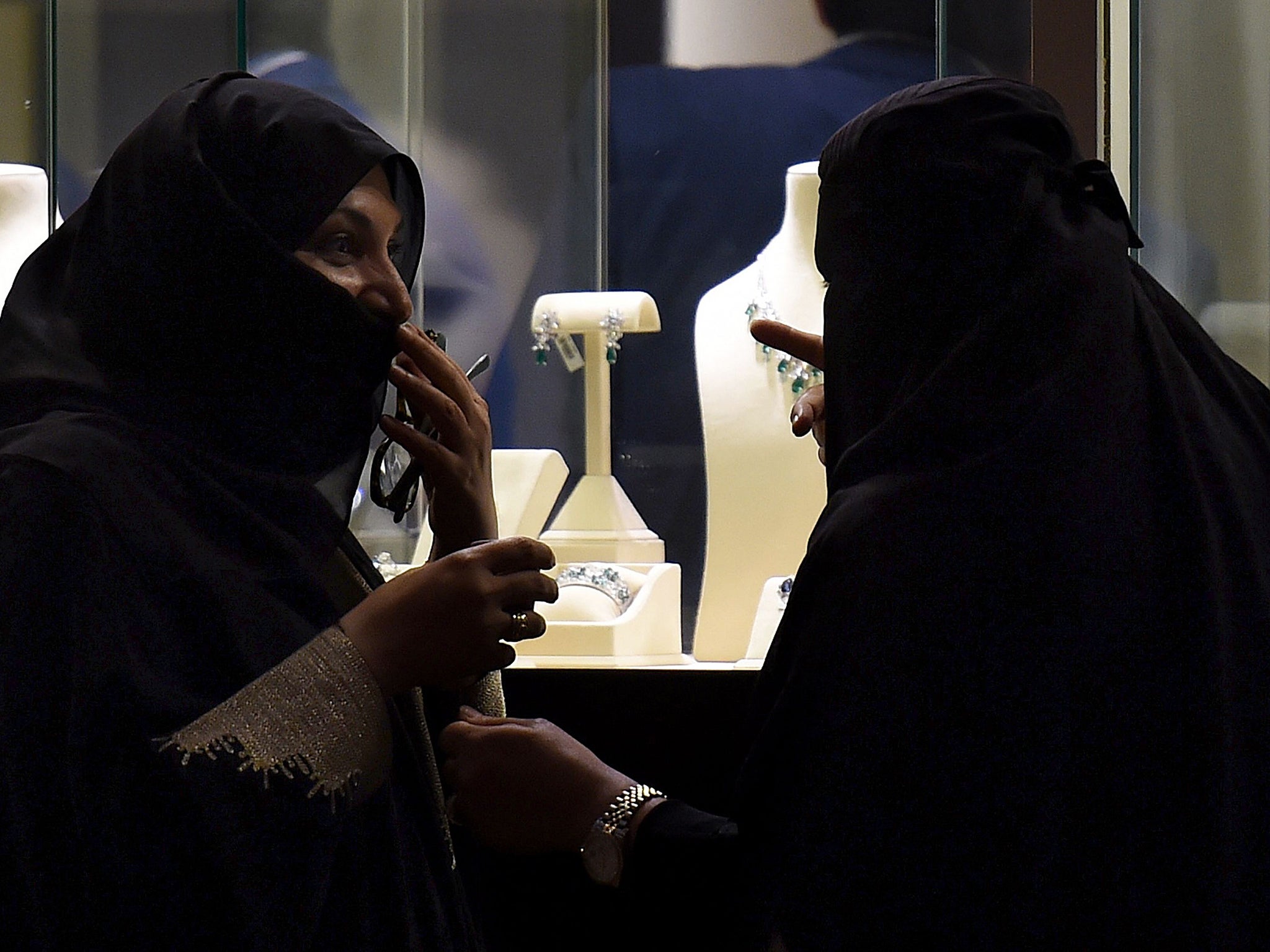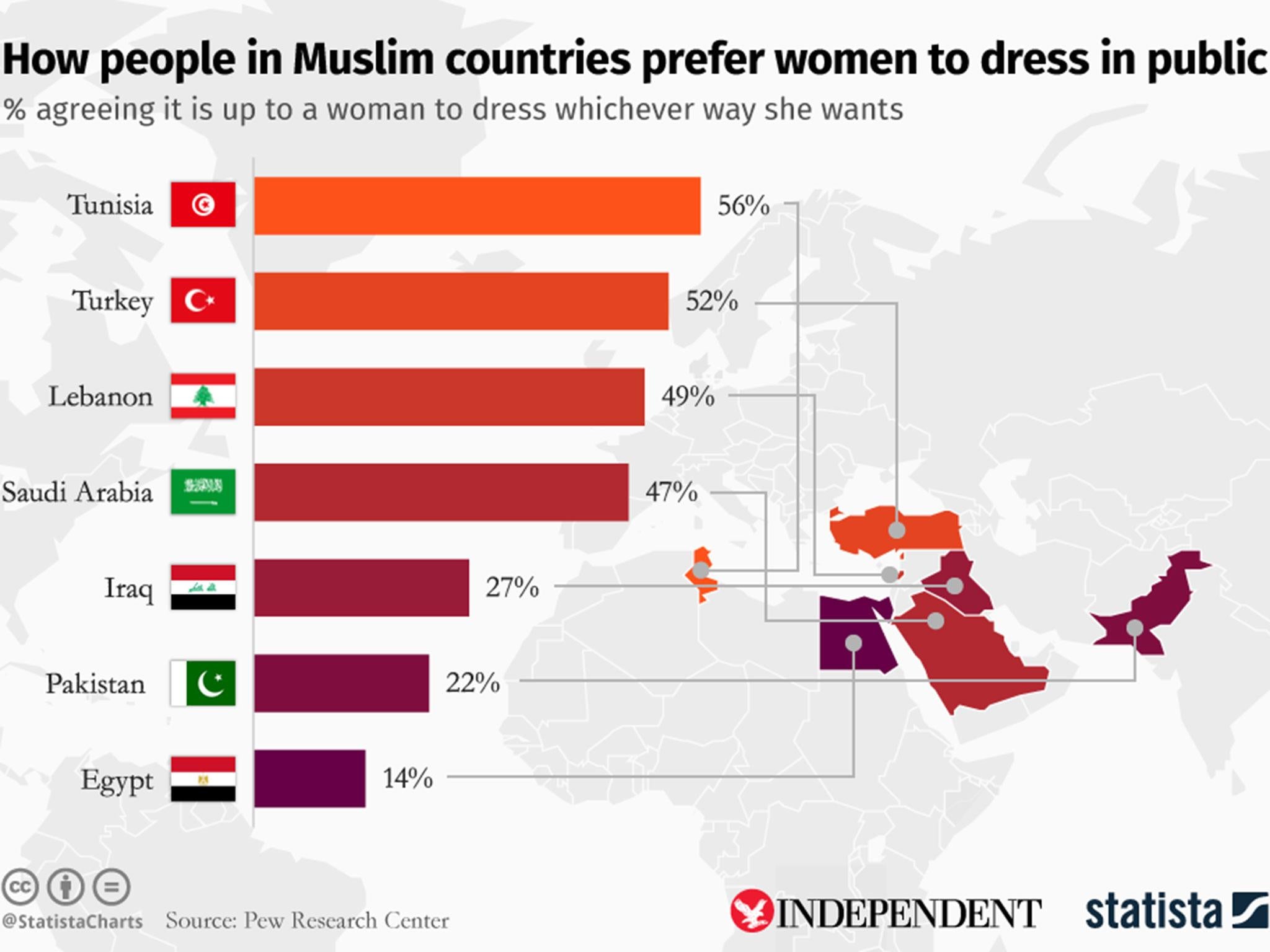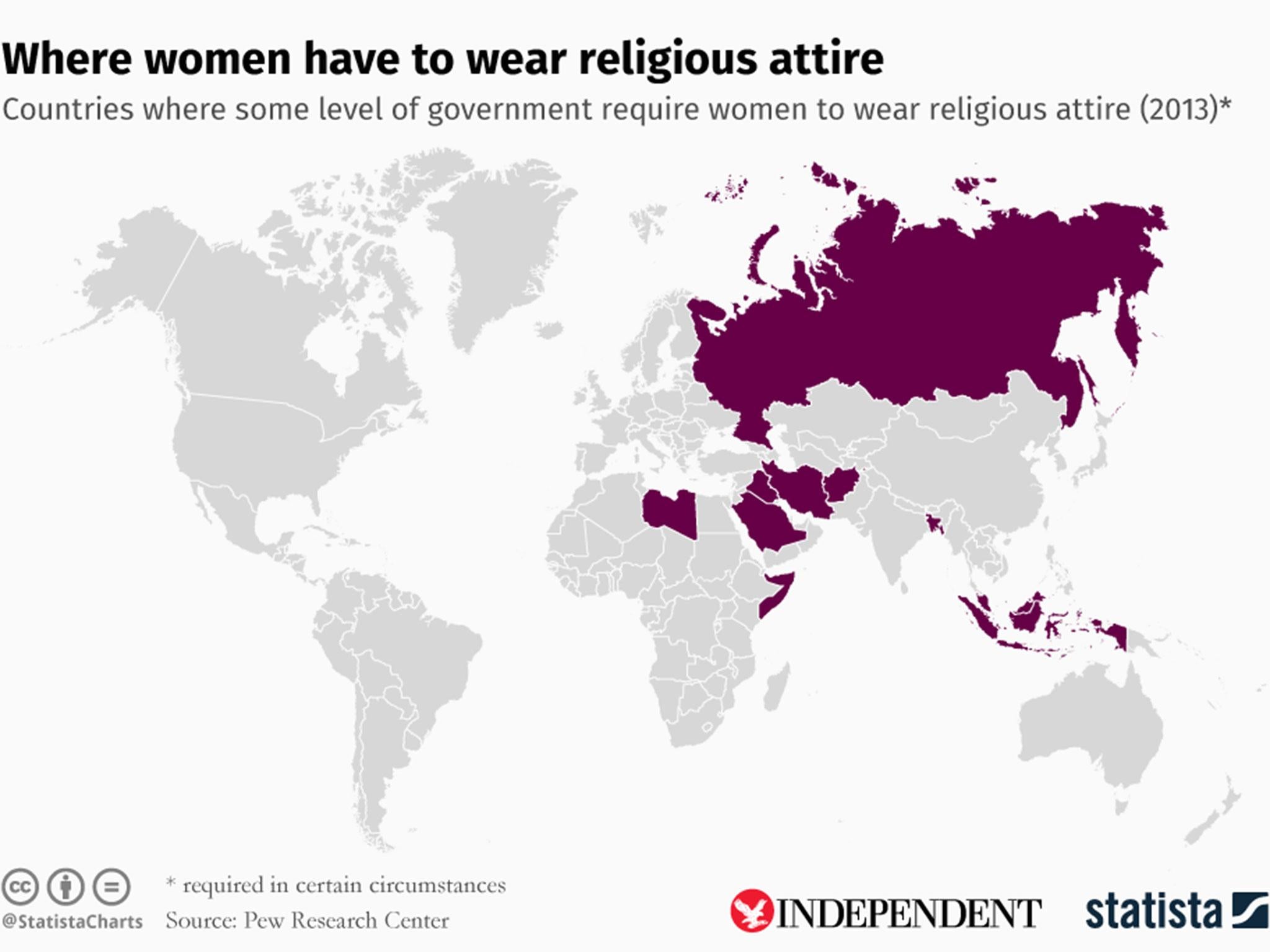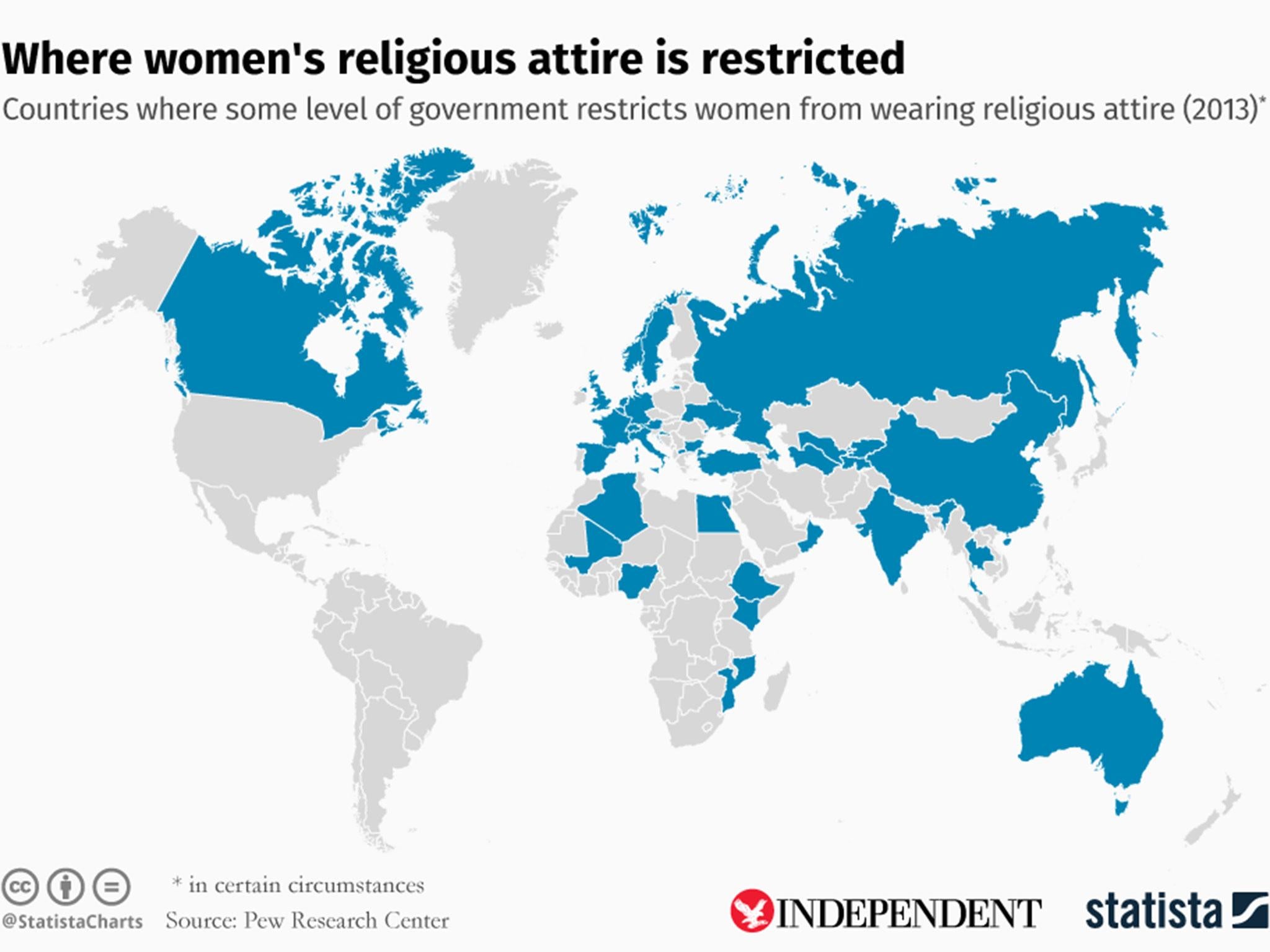Burqa bans: As debate rages in Europe, survey shows how Muslim-majority countries feel about women’s clothing
Almost half of respondents in Saudi Arabia said women should ‘dress how they want’

Your support helps us to tell the story
From reproductive rights to climate change to Big Tech, The Independent is on the ground when the story is developing. Whether it's investigating the financials of Elon Musk's pro-Trump PAC or producing our latest documentary, 'The A Word', which shines a light on the American women fighting for reproductive rights, we know how important it is to parse out the facts from the messaging.
At such a critical moment in US history, we need reporters on the ground. Your donation allows us to keep sending journalists to speak to both sides of the story.
The Independent is trusted by Americans across the entire political spectrum. And unlike many other quality news outlets, we choose not to lock Americans out of our reporting and analysis with paywalls. We believe quality journalism should be available to everyone, paid for by those who can afford it.
Your support makes all the difference.As debate continues to rage about the burkini and proposed “burqa bans” in Europe, research has shown that several Muslim-majority countries prefer women to have their faces and hair uncovered.
Despite restrictive laws governing how women must dress in public, almost half of Saudi Arabians believe women should wear what they want, according to a survey by the University of Michigan’s Institute for Social Research.
A study found that while residents of the country and several other Muslim-majority nations said veils covering the hair were “appropriate” in public, many supported increased freedom of dress.

When asked if they agreed with the statement that it was “up to a woman to dress whichever way she wants”, 56 per cent of Tunisians respondents replied with the affirmative, followed by 52 per cent of Turks and 49 per cent of Lebanese people questioned.
The figures were lower in the other Muslim-majority countries surveyed, including Pakistan, Saudi Arabia and Egypt, a chart by Statista showed.
Saudi Arabia is among the few nations to legally impose a dress code on women, stipulating that they must wear the abaya – a loose floor-length dress – in public and a headscarf.
Iran enforces similar rules, as does the United Arab Emirates, although Western women are not routinely expected to follow the same regulations as locals.

The University of Michigan’s research, carried out in 2014, showed that on average across the seven countries surveyed, the majority of respondents preferred women to cover their hair with a veil.
Lebanon was the exception, while a third of Turkish people also said uncovered hair was “appropriate for women in public”, and only Saudi Arabia and Pakistan had a majority of respondents in favour of the niqab, which also covers the face.
Intense debate continues to rage in several European countries over the prospect of new burqa bans in line with those brought in by Belgium and France.
Germany is considering the move, while the Netherlands has approved a partial prohibition on face-covering Islamic veils and Barcelona outlaws burqas in some public spaces.

Several other countries also restrict the right to wear religious clothing or symbols in some circumstances, including the US, Australia and India, as shown by the above map created for The Independent by Statista.
A recent survey by YouGov found the British public wanted a universal ban by an overwhelming margin of more than two-to-one.
When asked if they would support or oppose a law against the burqa in the UK, 57 per cent of respondents said they were for and just 25 per cent opposed.
“To what extent would you support or oppose a law that bans people from wearing the burqa in the UK?"
Although the question related specifically to the burqa, which covers the entire face and hair with a mesh panel in front of the eyes, the veil is often confused with the niqab or hijab, which leave part or all of the face uncovered.
In France, several court cases are underway regarding bans on burqinis – a type of swimwear worn by some Muslim women to cover the body and hair – brought in by several Rivera resorts.
The State Council, France’s highest administrative court, set a national precedent by ruling one of the first bans illegal but judges in lower courts have upheld the by-laws in some cases.
Join our commenting forum
Join thought-provoking conversations, follow other Independent readers and see their replies
Comments